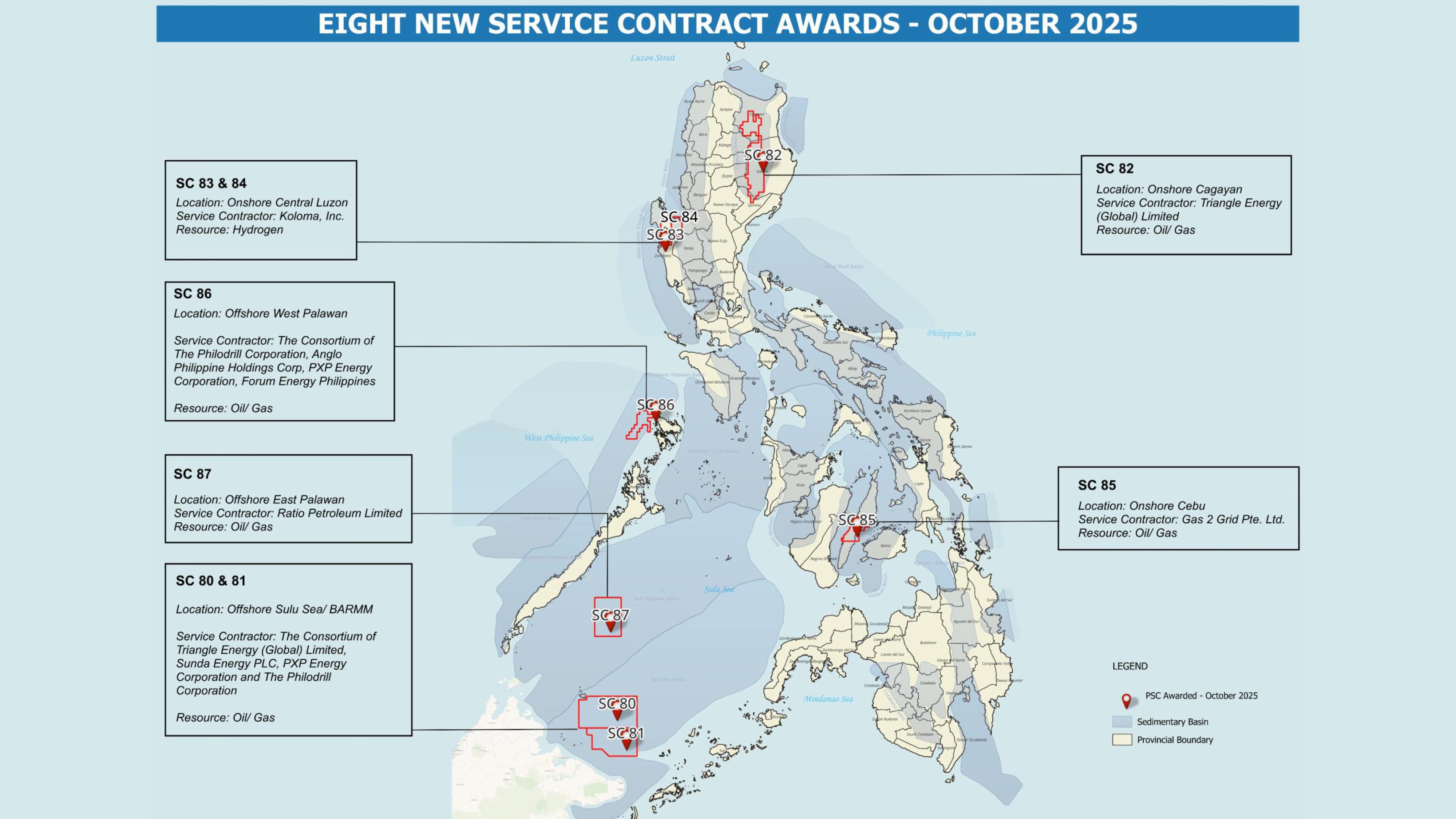
By Brian Campued
Reaffirming the administration’s resolve to accelerate domestic energy exploration and production, President Ferdinand R. Marcos Jr. witnessed the presentation of eight new petroleum service contracts (PSCs) of the Department of Energy (DOE) and private sector partners.
In a speech at Malacañang on Wednesday, the President underscored that the PSCs will bolster the Philippines in its efforts towards greater energy security while reducing the country’s dependence on imported petroleum.
According to Pres. Marcos Jr., the Philippines imported around 340,600 barrels of liquid fuel in 2024 or about 99.68% of the country’s entire petroleum supply. Additionally, 46.15% of the country’s natural gas requirement was imported while 53.85% came from the Malampaya gas field in Palawan.
“These numbers attest to our reliance on imported fuel, making us vulnerable to forces beyond our control. At ‘pag nagtaas ang presyo ng gasolina o krudo sa pandaigdigang merkado, ang mga ordinaryong Pilipino ang nahihirapan,” he said.
“Sa pamamagitan ng mga service contract na ito, magkakaroon ng kasiguruhan ang supply at enerhiya sa ating bansa. Sapat na enerhiya para tugunan ang pangangailangan, hindi lamang sa ngayon, kundi para na rin sa kinabukasan ng ating mga anak at ang ating mga susunod na henerasyon,” he added.
The contracts worth $207 million—covering exploration areas in Palawan, Sulu, Cagayan, Cebu, and Central Luzon—mark the largest batch of PSCs awarded in Philippine history, according to DOE Sec. Sharon Garin.
“We are particularly proud that several of these contracts mark firsts for our nation, including the world’s first competitive bid for native hydrogen and the first co-managed petroleum projects with the Bangsamoro Autonomous Region in Muslim Mindanao (BARMM),” Garin said.
“These milestones show how innovation and inclusion can move hand in hand in shaping our energy future,” she added.

The PSCs signed by the President and the respective private sector partners are as follows:
- PSC No. 80, located in the Sulu Sea basin, covers approximately 780,000 hectares. This was awarded to a consortium of Triangle Energy (Global) Limited, Sunda Energy Plc, PXP Energy Corporation, and The Philodrill Corporation.
- PSC No. 81, located in the Sulu Sea basin, covers approximately 532,000 hectares. Also awarded to the same consortium as PSC No. 80.
- PSC No. 82, located in Cagayan basin and has an area of 480,000 hectares, was awarded to Triangle Energy (Global) Limited.
- PSC No. 83, located in Central Luzon, covers 126,645 hectares for native hydrogen exploration. This was awarded to Koloma, Inc.
- PSC No. 84 will also explore native hydrogen resources in Central Luzon. Awarded to Koloma, Inc., this contract covers 85,082 hectares.
- PSC No. 85, covering 127,475 hectares in onshore Cebu, was awarded to Gas 2 Grid Pte. Ltd.
- PSC No. 86, awarded to a consortium of The Philodrill Corporation, Anglo Philippine Holdings Corporation, PXP Energy Corporation, and Forum Energy Philippines Corporation, covers 132,000 hectares in the Northwest Palawan basin.
- PSC No. 87, located in the East Palawan basin and awarded to Ratio Petroleum Ltd.
Garin said all these contracts were awarded through the Philippine Conventional Energy Contracting Program, “ensuring that only the most qualified participants or proponents—financially, technically, and legally—are entrusted with these exploration rights.”
The President, meanwhile, said that prospective sources of local fuel can power homes as well as generate employment and opportunities to boost various industries.
“This signals our readiness to lead in sustainable innovations. Consequently, these efforts will capture the interest of more international partners to invest in our country and to join our quest to discover new indigenous resources,” Marcos Jr. said.
The Chief Executive cited the DOE’s initiatives to encourage more investors in the Philippine energy sector, such as a circular granting special allowances to petroleum service contractors and an Energy Virtual One Stop Shop platform that streamlines the energy permitting processes.
“We will continue to update and upgrade our processes to make them more responsive to the needs of our investors and our communities,” he emphasized.
-jpv
